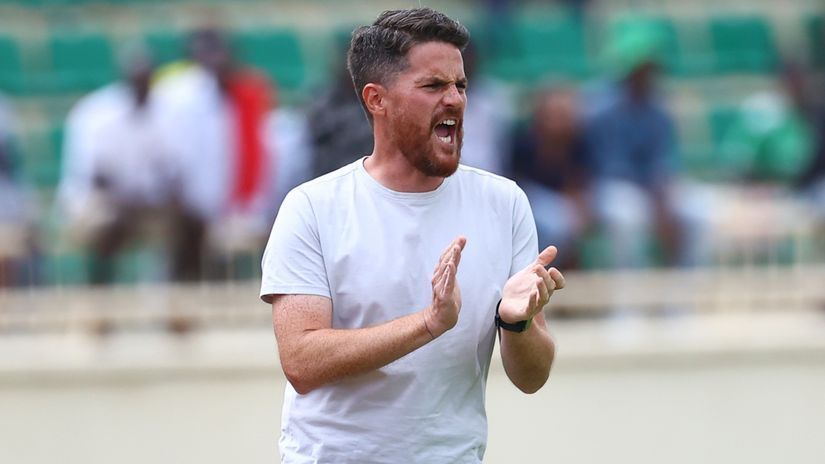Former Gor Mahia head coach Jonathan McKinstry believes that most Kenyan players lack the sporting mentality needed to succeed outside their home country.According to the Irish tactician, many East African players prefer the comfort of playing locally rather than pushing themselves to break into European leagues, a stark contrast to their West African counterparts.##NAJAVA_MECA_8823726##Follow our WhatsApp channel for more newsNow the head coach of the Gambian national team, McKinstry led Gor Mahia to back-to-back league titles during his two-season tenure. His coaching career has also seen him take charge of the Rwandan and Ugandan national teams, giving him extensive experience across multiple African football landscapes.When asked why West African players tend to thrive abroad more than Kenyan and by extension East African players, McKinstry pointed to a difference in mentality. He argued that while West African players display an intense hunger for success, many East African players lack the same level of ambition and drive.Harambee Stars defender appointed captain of Malawian giants”This is not just a Kenyan issue,” McKinstry told Tata Sports. “I’ve seen the same in Tanzania, Rwanda, and Uganda but it is different in West African countries like Sierra Leone and Ghana. The difference is that in West Africa, players have a relentless desire to make it. By the age of 15, they’re not dreaming of playing in the Ghanaian or Sierra Leonean leagues—they’re aiming for Europe.”McKinstry explained that West African players are willing to start at the bottom in Europe, even in lesser-known leagues, and work their way up, enduring financial struggles along the way.Kariobangi Sharks star midfielder secures trials with Norwegian top tier side”They don’t care if they have to begin in the third division in Eastern Europe with a low salary. They see it as a stepping stone and are willing to sacrifice early on to reach the elite leagues,” he said.FKF intensifies efforts of attracting sponsors to restore Kenya’s football gloryIn contrast, McKinstry observed that many Kenyan and East African players aspire to reach the top but are not necessarily prepared to make the sacrifices required to get there.”They want success, but they’re often not willing to endure the hard work and difficulties that come with it,” he remarked.The coach also highlighted how financial incentives in the FKF Premier League Premier League play a role in players choosing to stay local rather than seeking opportunities abroad.”Top clubs like Gor Mahia, Bandari, and Police offer relatively good salaries—sometimes even better than what some West African leagues pay. This makes players comfortable, and as a result, many choose to stay in the local league for their entire careers,” he explained.Joash Onyango grateful to Kenyans after bagging awardWhile he acknowledged that this financial stability helps improve the league’s overall standard, he warned that it might prevent exceptional talents from reaching their full potential.”This system may keep the league competitive, but it doesn’t necessarily produce top-tier talents. I didn’t see many standout players in Kenya. That’s not to say they don’t exist, but for a country of its size, there should be more,” McKinstry concluded.Gor Mahia coach on why they failed to beat AFC Leopards in Mashemeji Derby

